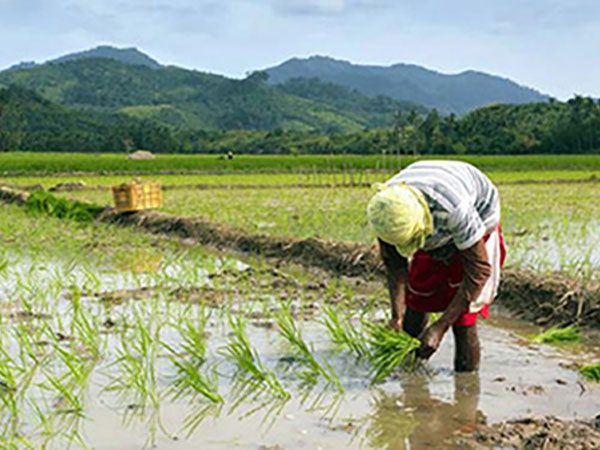 THE Federation of Free Farmers (FFF) proposed amendments to the Rice Tariffication Law (RTL), including giving the chief of the Department of Agriculture (DA) control over the Rice Competitiveness Enhancement Fund and additional tariff collections in excess of P10 billion.
THE Federation of Free Farmers (FFF) proposed amendments to the Rice Tariffication Law (RTL), including giving the chief of the Department of Agriculture (DA) control over the Rice Competitiveness Enhancement Fund and additional tariff collections in excess of P10 billion.
FFF noted that RTL had a provision which provided for the release of funds to, and direct implementation of programs by individual implementing agencies under RCEF. This bypassed the DA secretary and the DA’s regular operational structure.
The group’s proposals were contained in a document it submitted to the House Committee on Agriculture and Food, which is currently holding hearings on the RTL.
“RTL still made the DA Secretary accountable and responsible for the Rice Fund despite depriving him of direct access to, and control over, RCEF,” it said.
“The direct transfer of funds and responsibilities to small research and training entities (mostly under the DA), which have limited manpower and field presence, has resulted in delays and added costs in program implementation, duplication of functions currently performed by regular DA offices and personnel, and concerns about the sustainability of these programs once RCEF funding stops,” it added.
The current scheme, the group said, resulted in the “fragmentation and compartmentalization” of DA programs, with RCEF activities, targets, and budgets often being determined apart from the regular program for the rice sector.
FFF also called for “flexible allocations” of funds to address localized problems and changes in priorities over time since the RCEF distribution scheme prohibits the realignment of funds across the four major program components.
Under Article 13 of the RTL, “the unutilized portion of the Rice Fund allocated to the implementing agencies shall not revert to the General Fund but shall continue to be used for the purpose for which it was set aside.”
The group said it recognizes the primacy of fund usage to mechanization, seed support, credit, and farm extension. However, it said the government should consider allocating it to common service facilities, such as soil and leaf analysis laboratories, grains drying and processing centers located near buying stations of the National Food Authority, and storage facilities.
It said the credit component of RCEF should be transformed into a revolving fund, with every loan collection and all net earnings accruing to the fund be made available for relending to program beneficiaries.
According to FFF, the current stipulations under RTL do not expressly declare the credit fund under RCEF as a revolving fund.
“The Department of Budget and Management and Commission on Audit have insisted that the Land Bank and Development Bank of the Philippines should remit all loan collections to the National Treasury after a single lending cycle. In other words, they cannot be relent again and will forever be lost to the Treasury.”
It also proposed the conversion of the credit fund into a subsidy program for bank interest fees and services fees. Farmers and cooperatives could use this “to subsidize interest charges and service fees while tapping the funds of lending banks for loans.”














© Copyright 2023 The SSResource Media.
All rights reserved.